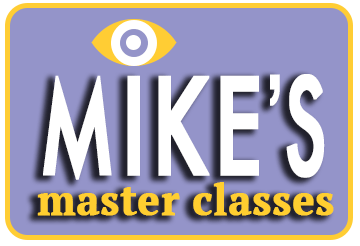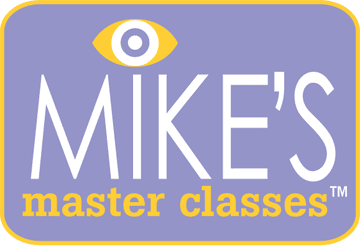Description
Series Includes:
Triads and Seventh Chords of the Melodic Minor Scale Class Content | Steve Herberman
Triads and seventh chords of the Melodic Minor scale and their practical applications over altered dominants and two-five-ones.
Take your comping and chord soloing to the next level by utilizing the harmonized Melodic Minor scale. In this class you’ll receive examples to practice resolving altered dominant sounds through the use of these rich chordal textures. Many of these chord forms are familiar to many guitarists though we’ll be stringing together chords to create a refreshing chain of altered dominant sounds and lead them to satisfying resolutions. This really breaks a player out of habitual chord patterns and licks to create fresh and interesting new patterns. The goal of this class is to firmly establish this concept in your ears and mind and, most importantly, to get it under your fingers so it becomes second nature!
| Harmonized Triads and Seventh Chords of the Melodic Minor Scale | |||
| Harmonized Triads and Seventh Chords of the Melodic Minor Scale | 01:08:00 | ||
Practicing and Memorizing Tunes Class Content | Steve Herberman
Practicing and Memorizing Tunes: A Systematic Approach For All Levels
Steve will take you through the process of learning new tunes with an emphasis on hearing the melody and changes and how they fit together. A step by step method, thorough to the point of reaching a deep understanding of the tune at hand. Transposition will be made much easier after following logical steps including singing, root motion, chord functions, guide tone lines, logical fingerings, a variety of chord/melody concepts and much more. When tunes are internalized in this way, long term memorization will be possible with greater flexibility. Expand your repertoire while maximizing your practice time!
| Practicing and Memorizing Tunes | |||
| Practicing and Memorizing Tunes | 01:31:00 | ||
Fundamentals Checkpoint Class Content | Steve Herberman
We all know how important fundamentals are. But are they mastered to the point that they can be called upon at any instant during performance? For instance when a guitarist comps, he/she must be able to put any note of their choosing on the top of their voicing quickly and accurately. Without knowing at least the common chord voicings in all of their inversions one’s comping may fall short of the mark. When soloing, having complete command of chord scales and arpeggios in a variety of positions is crucial. Getting serious about really knowing one’s fundamentals allows the musician to focus on the business at hand: music making.
I often ask students how well they know triads. The answer I typically receive is “sure I know those.” But can they be played quickly and accurately in all inversions on all adjacent string sets? Very seldom in my teaching experience. It’s an easy enough gap to fill along with possible other deficits in a player’s mastery of the fingerboard. Next we’ll review all of the inversions of the “Freddie Greene” voicings of all chord qualities and there will be examples of how to apply them to tunes. Seventh chords on all adjacent string sets will be reviewed and plugged into tunes such as Wes Montgomery’s “Cariba”. Other exercises will include minor 6th diminished chord and arpeggio studies a la Barry Harris and will conclude with a chord inversion system featuring many non-adjacent string chords, a more advanced system that show all voicing possibilities of seventh chords. Grand arpeggios (R,3,5,7,9,11,13) studies will also be addressed.
All common scales in five positions (Berklee method) including interval exercises and arpeggio studies will be covered. To really know a scale is to be able to play it in any sequence of intervals, for example a C real melodic minor scale in diatonic 5ths. Having one’s fundamentals in check will provide a solid foundation needed for improvisation. This class should be helpful for players on all levels, filling in any gaps allowing the player to better play what they hear.
This class includes 24 pages of material prepared by Steve!
More info on this topic can be viewed by going to my March ’08 Modern Guitars column entitled Jazz Scope http://www.modernguitars.com/herberman/
| Fundamentals Checkpoint | |||
| Fundamentals Checkpoint | 01:33:00 | ||
Developing A Personal Practice Routine Class Content | Steve Herberman
Practice is always changing and evolving. One key is to let the actual music be the guide keeping practicing fun, interesting and most importantly, practical. Different types of tunes (tempos, key signatures, harmonic rhythm, time signatures, etc.) place certain demands on one’s technique, knowledge of theory and aural abilities. With all that there is to practice, often working on a limited practice schedule, it can easily be overwhelming! In this class important core principles are identified and each player, after honest self-evaluation, can “laser in” on areas that are weak or strengths can be identified and built upon. This class is a survey of practical exercises that can be paired down to the essential tools that will benefit a player beginning from where they are presently to any point along their musical journey. From transcribing one phrase at a time of a classic solo to voice-leading arpeggios in 8th notes this class will be comprehensive in its scope. Learn how to practice away from the instrument using visualization, chord spelling and pitch axis exercises. From working on your time feel to sightreading from a fakebook to basic time management skills this will be an information-packed session that will help you focus on getting more out of your practice time.
| Developing A Personal Practice Routine | |||
| Developing A Personal Practice Routine | 01:34:00 | ||



Reviews
There are no reviews yet.